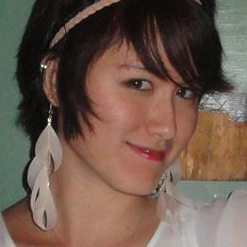
Training, Learning & Living
In this part of Hyomi’s Adventures we are going to give you snippets of 2 posts. The first one is a week after she has moved in with her first host family, where she stays while completing her training. This is a time of dealing with culture shock, learning how to survive and making new friends. To read the full posts please follow the blue date links to her Tumblr blog.
I now know every possible disease that I could contract, as well as how I should avoid them. I’m a little concerned that my colleagues and I are going to be hypochondriacs by the end of training, worrying that every bug bite or fleeting pain could spell out our doom. The content of our sessions thus far have ranged from an overview of the types of projects we will be getting involved in, how to make smart and safe choices in our daily lives in Swaziland, learning the local language siSwati, how to boil and filter our water so we don’t get dysentery or shistosomiasis or some other lovely sickness, and how to adjust to the culture and way of life here.
We will be living with our current host families in Manzini for nine weeks, until training is over, and then move into our permanent sites once we are sworn in officially as PCVs (Peace Corps Volunteers). Ngihlala e Kudzeni. (I live in Kudzeni village). Once volunteers move in with their host Makes and Babes (pronounced “Mah-gay and Bah-bay, or Mothers and Fathers), they are christened with new Swazi names. My Swazi name is Nothando, which means Love. They selected it before they met me.
The Shabangu household is comprised of Mr. Esau Shabangu, a local pastor, his wife Make Shabangu, my younger bhuti (brother) Sandile, my older bhuti Ncamiso, my sisi (sister)-in-law Fiona, and Ncamiso and Fiona’s adorable ten month old girl, Sakhula. They also have three energetic and lovable dogs, whom I have dubbed Nala, Napoleon, and Ninja.We also have tons of chickens and roosters milling around. There’s this one rooster whose demise I’m currently plotting, since it feels the need to start crowing its head off outside my window at 2 in the morning.
Living in Luxury – well, not quite
 I am quite fortunate in that my hut is very spacious, clean, and has electricity (a luxury that we Americans often take for granted), which is not the case in all volunteer homes. Normally, volunteers have mosquito net canopies over their beds acting as shields against those vicious little vampires, but mosquitoes don’t come out too often in the winter.
I am quite fortunate in that my hut is very spacious, clean, and has electricity (a luxury that we Americans often take for granted), which is not the case in all volunteer homes. Normally, volunteers have mosquito net canopies over their beds acting as shields against those vicious little vampires, but mosquitoes don’t come out too often in the winter.
The process of purifying the local water here(which often comes directly from rivers and streams) consists of boiling water in small quantities via a kettle or small pot, pouring it into a water filter container that holds about a gallon at a time, waiting an hour or more to let the water filter through, adding two to three drops of bleach in the filtered water, and waiting another hour for the bleach to dilute. Needless to say, the process is a painstaking one, just to be able to drink clean water.
I miss hot showers. A lot.
Toilets are also things I definitely took for granted. There is a latrine outside, housed by rusty sheets of tin nailed together, and looks nothing short of a dark pit of doom. My fear of possible black mambas and giant spiders has driven me to using a chamber pot of sorts in my room (which is actually just a bucket).
Internet is definitely out of the question here, until I can get myself to an internet cafe. Most volunteers type up blog posts or letters ahead of time and save them on a flash drive to send out once they finally track down some internet. Not having connectivity can be annoying and isolating, but liberating at the same time.
 Sanibonani! On Sunday morning, we all gathered at the training center for a “Top Chef” style competition, to see what kind of meals we could come up with, using ingredients that we had bought at the local market.Aside from trying my hand at cooking in Swaziland, I’ve been trying to study siSwati whenever I can. My host family has been really helpful, particularly my brother and sister. We usually spend a few hours together every evening, and I normally am able to pick up a few phrases or words by the time I leave and return to my hut.
Sanibonani! On Sunday morning, we all gathered at the training center for a “Top Chef” style competition, to see what kind of meals we could come up with, using ingredients that we had bought at the local market.Aside from trying my hand at cooking in Swaziland, I’ve been trying to study siSwati whenever I can. My host family has been really helpful, particularly my brother and sister. We usually spend a few hours together every evening, and I normally am able to pick up a few phrases or words by the time I leave and return to my hut.
Monday, July 15th 2013
During this past week of training, we’ve been focusing a lot on our roles as volunteers in this country, and what we should be prioritizing during our period of service. Peace Corps has a very specific approach to development, in that it focuses greatly on relationship-building to lay the foundation for trust between a volunteer and his or her community.As a Peace Corps volunteer, my mission is to focus on the assets of a community, rather than just its needs.we want to develop people’s capacity to help themselves, and help them envision what is possible for their own lives.
A field trip and a surprize visit
 The first stop on our field trip was a visit to the garden of an organization called Guba, which teaches locals about best practices for perma-culture and composting, and how to make the most efficient use of a garden space.Our next stop was the Swaziland National Museum, where we were given a brief tour of Swazi culture and history.We moved on to a cultural village, where we saw an amazing traditional dance and musical performance.
The first stop on our field trip was a visit to the garden of an organization called Guba, which teaches locals about best practices for perma-culture and composting, and how to make the most efficient use of a garden space.Our next stop was the Swaziland National Museum, where we were given a brief tour of Swazi culture and history.We moved on to a cultural village, where we saw an amazing traditional dance and musical performance.
On our next stop at the King Sobhuza II memorial, the tour guide gave us a comprehensive history of King Sobhuza II, who had diplomatically negotiated with the British to secure independence for his country. Later that afternoon, we arrived at Sondzela Game Reserve, where wild animals roamed freely.
When I returned to my village from the game reserve, I received a special visit from a family who is part of my faith tradition. It was really comforting to know that, because we shared the same faith and beliefs, I would immediately be welcomed into their family as a sister. They offered me support in anything I needed, and made me feel really at home here in Swaziland. I know of only eight other UC families in Swaziland, so the community is very tight-knit. I look forward to going with them to church next Sunday. We experienced a temporary blackout that evening, so my family cooked porridge with milk and honey by candelight. Romantic, right? Ngitakubona masinyene (See you later) -Nothando












